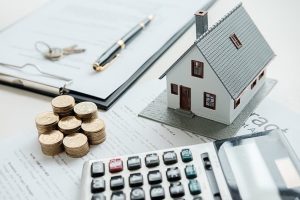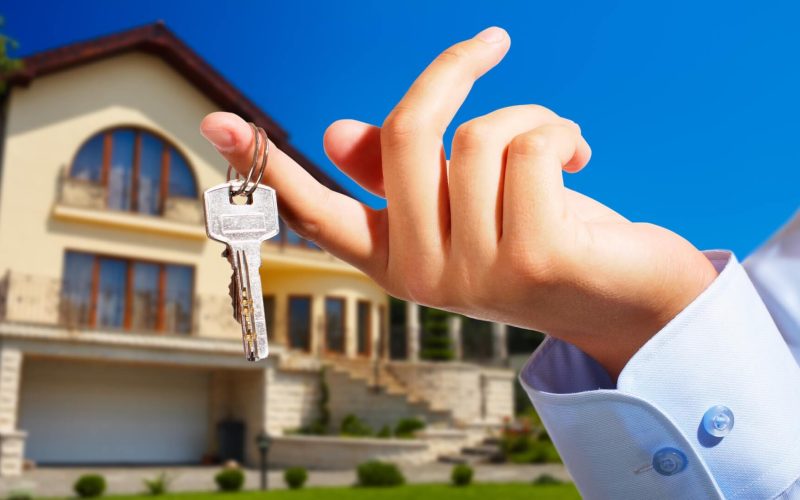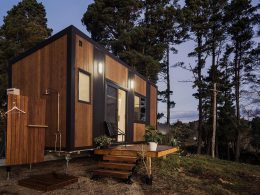Counting the Costs: What It Takes to Own a Home
Owning a home is a significant life goal, but it’s not just about having a place to call your own. The dream of homeownership comes with financial responsibilities that extend far beyond the initial purchase. In this comprehensive guide, we’ll uncover the real costs of owning a home, from monthly expenses to unexpected emergencies.
Beyond the Purchase Price
When people think about the cost of homeownership, they often fixate on the purchase price – the big number that represents a lifelong achievement. However, the purchase price is just the beginning of the financial commitment that comes with owning a home.
- Down Payment: Your journey to homeownership begins with a down payment, typically a percentage of the property’s purchase price. While a substantial cost, it’s just one piece of the puzzle.
- Monthly Mortgage Payments: Your monthly mortgage payment is a fundamental ongoing expense. It consists of two components: the principal, which reduces your loan balance, and the interest, which represents the cost of borrowing money. As time passes, the balance between these two elements shifts, with a larger portion of your payment going towards the principal.
- Property Taxes: Property taxes are an ongoing financial obligation, determined by your property’s assessed value and local tax rates. Property taxes can vary significantly based on location, impacting your financial plan.
- Homeowners Insurance: Safeguarding your investment is essential. Homeowners insurance provides coverage for property damage, personal liability, and more. The cost varies based on the property’s value, location, and the extent of coverage you choose.
- Maintenance and Repairs: Every home requires regular maintenance and, at times, repairs. This ongoing expense is crucial to prevent larger, costlier issues in the future.
Table 1: Ongoing Homeownership Costs
| Expense | Frequency | Average Cost |
|---|---|---|
| Utilities | Monthly | Varies |
| Homeowners Association | Monthly/Annually | Varies |
| Lawn and Garden Care | Seasonal | Varies |
| Pest Control | As needed | Varies |
| Renovations and Upgrades | Periodic | Varies |
Understanding Ongoing Costs
Owning a home involves a range of ongoing expenses, some predictable and others not. Here’s a closer look at these costs:
- Utilities: Utility bills are a significant monthly expense, encompassing electricity, water, gas, and internet. Costs depend on your consumption and local provider rates. Implementing energy-efficient practices can help lower these expenses.
- Homeowners Association Fees: If your property is part of a homeowners association (HOA), you’ll have monthly or annual fees to consider. These fees cover communal expenses such as landscaping, security, and the maintenance of shared amenities. HOA fees can vary widely based on the services provided.
- Lawn and Garden Care: If your property includes a yard or garden, you’ll need to budget for seasonal maintenance. This can include lawn mowing, gardening, leaf removal, and landscaping. The cost is determined by the size of your property and the level of care you desire.
- Pest Control: Pest problems may occasionally arise, necessitating professional extermination services. The cost depends on the severity of the issue and the services required.
- Renovations and Upgrades: Over time, you may want to make changes to your home. These periodic expenses can vary widely depending on the scope of the project. Whether it’s a kitchen remodel, a bathroom renovation, or a room addition, planning and budgeting for these projects is essential.

Image by: https://listwithclever.com/
Unexpected Expenses
Unpredictable expenses are a part of homeownership, and being prepared for them is crucial:
- Emergency Repairs: Major issues like roof leaks, plumbing problems, or electrical failures can be costly and unexpected. An emergency fund can help you cover these unforeseen repairs, ensuring the safety and habitability of your home.
- Property Assessments: Homeowners’ associations may levy special assessments to fund significant community projects. These can be unexpected and have an impact on your finances.
- Property Value Fluctuations: The real estate market is subject to fluctuations that can affect the value of your property. These fluctuations can impact your equity and influence your long-term financial plans.
- Natural Disasters: Damage from natural disasters, such as hurricanes, wildfires, or floods, may not be fully covered by standard homeowners insurance. It’s essential to prepare for potential natural disasters and consider additional coverage if you live in an area prone to specific risks.
Preparing for Homeownership Costs
Responsible homeownership involves thorough financial planning. Here are essential steps to prepare for homeownership costs:
- Budget Wisely: Create a comprehensive budget that includes all the costs associated with owning a home, from mortgage payments and property taxes to ongoing expenses like utilities and maintenance.
- Emergency Fund: Build an emergency fund to cover unexpected repairs and expenses. Having savings set aside for unforeseen circumstances will provide peace of mind and financial stability.
- Regular Maintenance: Invest in regular maintenance to prevent larger repair bills. Regular inspections and maintenance of your home’s systems, such as HVAC, plumbing, and roofing, can extend their lifespan and reduce the likelihood of costly repairs.
- Insurance Coverage: Review your homeowners insurance to ensure it adequately covers your needs. Depending on your location, you may need additional coverage for specific risks, such as floods or earthquakes.
- Market Trends: Stay informed about local real estate market trends to understand property value fluctuations. This understanding can help you make informed decisions about when to buy, sell, or make renovations.
Conclusion
Owning a home is a significant achievement, providing stability and a place to call your own. However, it’s essential to be aware of the ongoing costs beyond the initial purchase price. Understanding these expenses, budgeting wisely, and preparing for unexpected costs are vital for successful and sustainable homeownership. By considering all aspects of homeownership costs, you can enjoy the benefits of owning your own home while maintaining financial stability and peace of mind. Your home sweet home is not just a place to live; it’s a long-term investment in your future.












